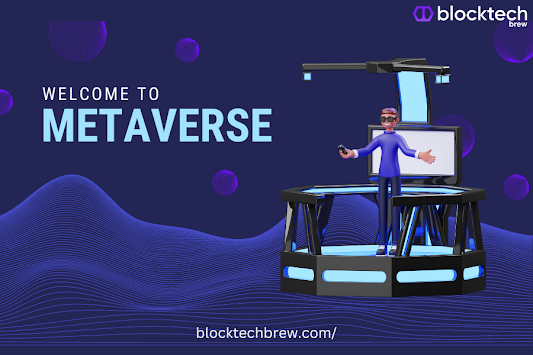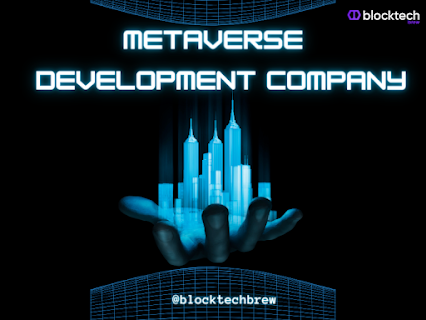Metaverse NFT Marketplace Development: Benefits, Types, and Features
The concept of the metaverse has been around for decades, but with recent advancements in technology, it has become more feasible than ever before. One area where the metaverse is gaining traction is in the development of NFT marketplaces. In this blog post, we will explore the benefits, types, and features of metaverse NFT marketplace development and provide a step-by-step guide to creating your own metaverse NFT marketplace.
What is the NFT Marketplace?
An NFT marketplace is a digital platform where users can buy, sell, and trade unique digital assets known as non-fungible tokens (NFTs). These tokens are created using blockchain technology and are unique, verifiable, and can be bought and sold like any other asset. NFTs can represent a variety of digital assets such as artwork, music, videos, virtual real estate, and more.
What are the features of the metaverse NFT marketplace development?
The metaverse NFT marketplace development company should provide the following features to their clients:
- Digital Wallet Integration: The metaverse NFT marketplace should support digital wallet integration for users to store their NFTs.
- User-Friendly Interface: A user-friendly interface is crucial to ensure that users can easily navigate and use the platform.
- Auction and Bidding: The marketplace should allow for auction and bidding functionality for NFTs, providing users with the opportunity to buy and sell NFTs at a fair price.
- Smart Contract Integration: Smart contract integration is necessary to ensure that transactions on the platform are secure and transparent.
- Community Features: Community features such as forums, social media integration, and chat rooms can help users engage with each other and build a strong community around the platform.
What are the benefits of metaverse and NFT marketplace development?
The development of metaverse NFT marketplaces offers several benefits, including:
- New Revenue Streams: Metaverse NFT marketplaces provide a new way for content creators to monetize their digital assets, allowing them to generate additional revenue streams.
- Global Reach: With the use of blockchain technology, metaverse NFT marketplaces can reach a global audience, giving creators and collectors access to a much larger market.
- Increased Authenticity: The use of blockchain technology ensures the authenticity of NFTs, providing collectors with a higher level of confidence in their purchases.
- Unique Digital Ownership: NFTs represent unique digital ownership of a digital asset, giving collectors a sense of ownership and exclusivity that was previously impossible in the digital world.
Key Components and Technical Elements Of Metaverse Marketplace
The key components of a metaverse NFT marketplace include:
- Blockchain Technology: The use of blockchain technology is essential to ensure the authenticity and security of NFT transactions.
- Digital Wallets: Digital wallets are necessary for users to store and manage their NFTs.
- Smart Contracts: Smart contracts are used to automate transactions and ensure that they are secure and transparent.
- User Interface: The user interface is crucial to ensure that the platform is user-friendly and easy to navigate.
What types of metaverse NFT marketplaces are out there?
There are several types of metaverse NFT marketplaces, including:
- Decentralized Marketplaces: These marketplaces operate on a decentralized network and do not rely on a central authority.
- Centralized Marketplaces: These marketplaces operate on a centralized network and are controlled by a central authority.
- Hybrid Marketplaces: These marketplaces combine elements of both centralized and decentralized networks.
A step-by-step guide to the metaverse NFT marketplace development
Choose a Development Company: Choose a reputable metaverse NFT marketplace development company to guide you through the process.
Define Your Niche: Define your niche and identify the types of NFTs that your marketplace will support. This could include artwork, music, virtual real estate, or any other digital asset that you want to focus on.
- Design Your User Interface: Work with your development company to design a user-friendly interface that will make it easy for users to buy, sell, and trade NFTs.
- Develop Smart Contracts: Smart contracts are the backbone of any NFT marketplace. Work with your development company to create smart contracts that will ensure secure and transparent transactions on your platform.
- Build Digital Wallet Integration: Digital wallets are essential for users to store and manage their NFTs. Work with your development company to build digital wallet integration into your platform.
- Incorporate Auction and Bidding Functionality: Auction and bidding functionality will allow users to buy and sell NFTs at a fair price. Work with your development company to incorporate this functionality into your platform.
- Test and Launch Your Marketplace: Test your platform thoroughly to ensure that it is secure and user-friendly. Once you are satisfied with the testing, launch your metaverse NFT marketplace and start promoting it to attract users.
Is it worth investing in metaverse and NFT development?
The metaverse and NFT development industries are growing rapidly, and there is a lot of potential for investment in these areas. Investing in a metaverse NFT marketplace development company could provide you with the opportunity to capitalize on this growing market and generate a significant return on your investment.
In conclusion, the development of metaverse NFT marketplaces offers several benefits, including new revenue streams, global reach, increased authenticity, and unique digital ownership. By following a step-by-step guide to developing your own metaverse NFT marketplace, you can create a platform that allows users to buy, sell, and trade unique digital assets. It's worth considering investing in this rapidly growing industry to capitalize on its potential for growth and profitability.




Comments
Post a Comment